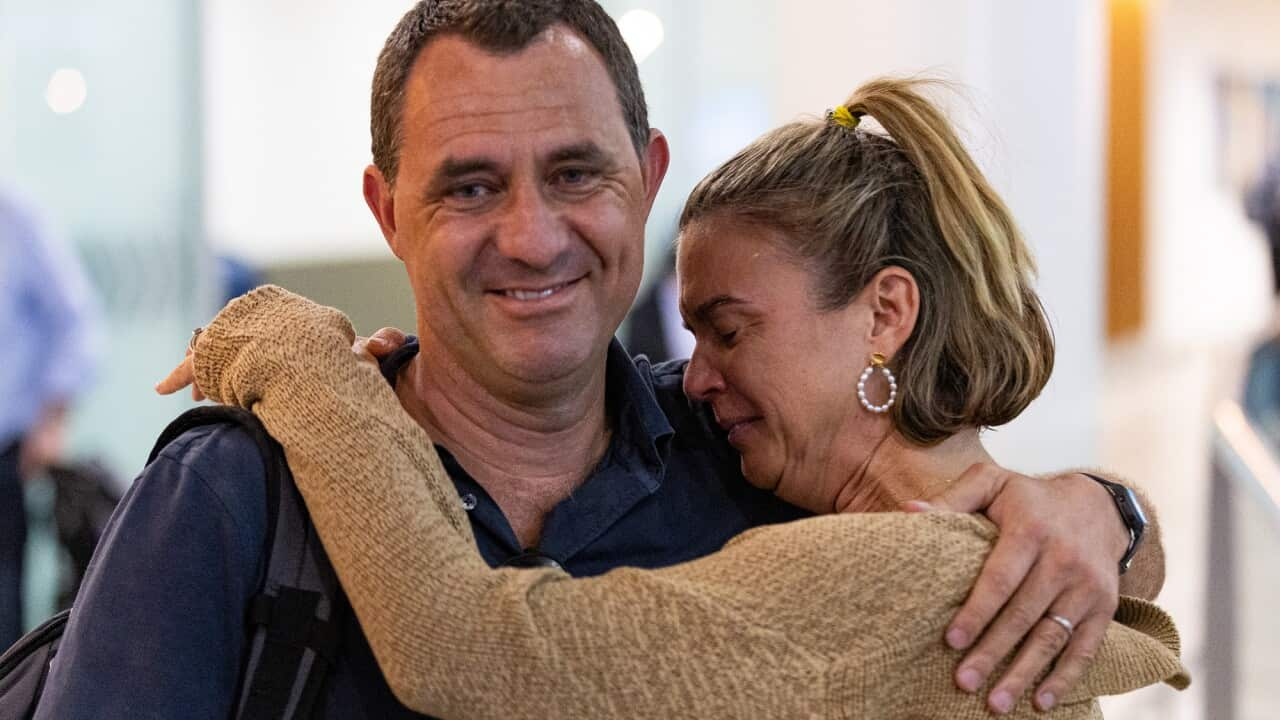TRANSCRIPT
Relieved Australians have arrived home, evacuated from New Caledonia where rioting, looting and food rationing had turned the French-controlled Pacific territory into what some had described as a war zone.
Two Royal Australian Air Force planes have repatriated 84 Australians and 24 other nationals to Brisbane.
These evacuees spoke upon arrival about their experiences living under curfew.
"All the streets were barricaded, and you've got all the civilians who are actually protecting themselves. They were taking night shifts to protect the streets to help out the police and the army."
"We were OK, we were in a hotel, we were safe. The hotel was providing food in the morning, so it was just only dinner and lunch. Some restaurants were open, so we managed to get some bread here and there."
The protests were sparked by anger among Indigenous Kanak people, who make up 40 per cent of New Caledonia's population, over a constitutional reform approved in Paris.
Local leaders fear the change, which allows residents who have lived in the territory for at least 10 years to vote in provincial elections, will reduce the voting power of the Kanak people.
Kanak activist Viro Xulue, says the constitutional reform, and the French response to the ensuing riots, had left people on the island "scared".
"Because the French government doesn't know how, how to control people here. They send more than 2,000 military for, to control, but it’s fail. All that people they are always in front of the police and military and soldiers saying, ‘Stop it, stop it. Macron stop it with the law. Don't remove our right Indigenous right."
Around 50 New Zealanders have also been able to flee the riot-stricken capital Noumea, arriving on New Zealand government-facilitated flights into Auckland.
With many foreign citizens still stranded in the territory, more flights are expected in the coming days facilitated by French authorities.
Australia's Minister for the Pacific region, Pat Conroy, says the federal government is working on options to evacuate the remaining Australians in New Caledonia.
"84 out of the 115 on the two flights were Australians. 300 total have registered, so there's another 216 to go, and we're working very hard with the French government on that. But it's very important we work with other countries like Canada, because in the end if there's a crisis somewhere else around the world, we'd be fighting very hard to get Australians onto the Canadian flight for example."
Last week, the local government said around 3,200 people were waiting to leave or enter New Caledonia, as rioting forced the closure of the international airport.
Nationals Senator Matt Canavan told Channel Nine the needs of Australians should come first.
"Australian assets should be used to prioritise Australians, so I think an explanation is needed here about whether Australians have been left stranded because the plane has been filled up with others. I have no problem helping those from other countries, if and when Australians are safe and sound."
But some Australians stranded in the territory were more concerned by what they described as a lack of communication from the Department of Foreign Affairs and Trade.
Caroline Tully is in northern New Caledonia, far from both the international airport and the domestic Magenta airport, the site of Tuesday's evacuations.
She told Channel Seven she was happy for the people who had been evacuated so far.
"It is a priority that the people that are elderly and are sick are given the priority seating to get on those flights home, but it's it's so frustrating on our end because we haven't heard anything. All that we have heard at this stage is that the French authorities are coming in, we don't know that for sure, but we've heard that the French authorities are coming in to potentially transport us to the international airport."
The deadly riots have claimed six lives do far, with 270 people arrested, as a state of emergency remains in place.
And now French President Emmanuel Macron will travel to the island almost 17,000 kilometres from mainland France.
Government spokeswoman Prisca Thivenot says Mr Macron will meet elected officials and local leaders on Thursday (23 May) for a day of talks on the island's future.
"This return to calm is happening, the situation is not completely normalised but the situation is improving. It is clear to us that much remains to be done before returning to normal. The government is therefore fully mobilised as I've underlined, since the start of the violence in New Caledonia."













